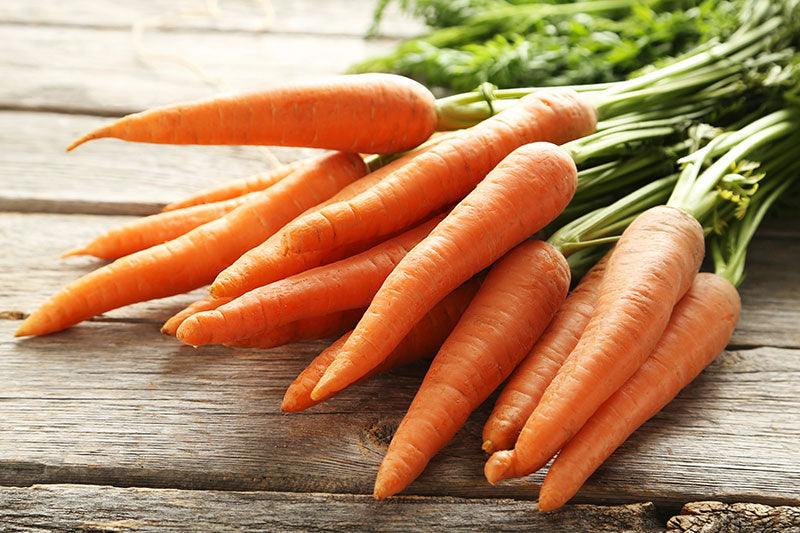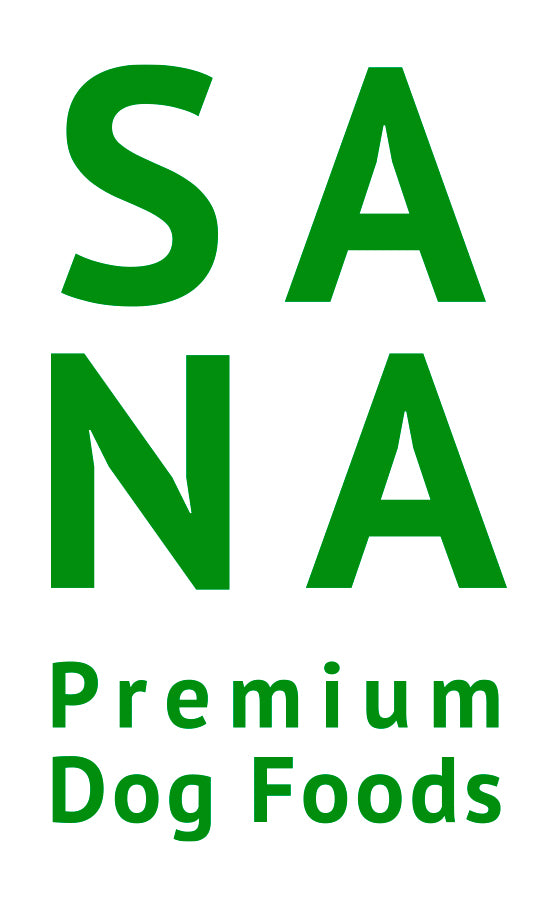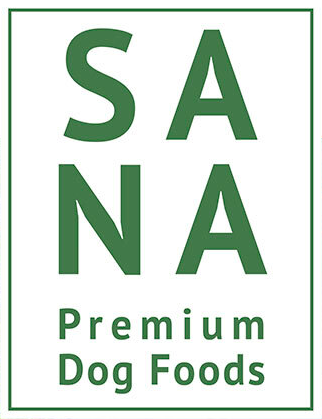Goat Wet Menu with Jerusalem Artichoke, Peach, and Safflower Oil (6 x 400g)
Subcribe to back in stock notification
- Produktinformation
- What's Inside and Why?
- Feeding Recommendation
High-quality goat meat, delicate Jerusalem artichoke, juicy peach, and premium thistle oil blend in our goat menu, creating a culinary delight for your four-legged friend.
The careful blend of high-quality rapeseed oil, thyme, rosehip, algae chalk, and seaweed meal completes this exclusive menu.
Our SANADOG wet menus are defined by a clear dedication to natural ingredients, setting us significantly apart from other canned food manufacturers. We consistently avoid artificial additives, flavor enhancers, and preservatives. By choosing the high-quality SANADOG wet menus, you opt for a consistent use of natural ingredients.
Composition
15% Goat Meat, 30% Goat Offal, 10% Goat Bones (ground), 15% Jerusalem Artichoke, 12.5% Carrot, 9.5% Apple, 4% Peach, 1.5% Rapeseed Oil, 0.8% Safflower Oil, 0.7% Thyme, 0.4% Rosehip, 0.4% Algae Lime, 0.2% Seaweed Powder.
Complementary food for dogs.
Analytical Constituents
Protein 9.5%, Crude Oils and Fat 4.5%, Moisture 75%, Crude Ash 2.6%, Crude Fibres 1%.

Goat Meat (15%)
Goat meat is a tasty and protein-rich source for dogs, rich in essential amino acids that contribute to muscle development and maintaining optimal health. With low fat content and good digestibility, goat meat is particularly suitable for dogs with sensitive digestive systems and can offer a varied nutritional option.

Goat Offal (30%)
Goat offal is a nutrient-rich supplement for dog feeding as it is an excellent source of high-quality protein, vitamins such as B12 and B6, and essential minerals like iron and zinc, which can promote muscle development, blood health, and overall vitality. The natural texture of offal promotes natural chewing, supports dental health, and makes it a tasty and nutritionally valuable option for dogs.

Ground Goat Bones (10%)
Ground goat bones are a natural and calcium-rich supplement for dog feeding that supports the development and maintenance of healthy bones and teeth. The fine texture facilitates processing in food and promotes natural chewing, which can contribute to dental health.

Jerusalem Artichoke (15%)
Jerusalem artichoke is a fiber-rich supplement for dog feeding that not only promotes digestion but is also a source of inulin, which supports gut health. Additionally, Jerusalem artichoke contains vitamins like B1 and B2 as well as iron, which can strengthen the immune system and promote healthy skin.

Carrots (12.5%)
Besides energy, fiber, and low calories, carrots are healthy as they are an excellent source of vitamins and minerals. Particularly noteworthy are vitamin A and biotin. Carrots are rich in beta-carotene, which is converted into vitamin A in the body.

Apple (9.5%)
Apples are suitable for a healthy diet as they contain many vitamins, minerals, and trace elements such as potassium, calcium, B vitamins, vitamin C, vitamin E, folic acid, pectin, and polyphenols.

Peach (4%)
Peaches are a healthy option for dogs as they are a source of important vitamins like vitamin A and C, which support the immune system and promote skin health. Moreover, peaches contain fiber that promotes digestion and supports the overall well-being of the dog. However, it's important to remove the seeds as they can be toxic.

Rapeseed Oil (1.5%)
Rapeseed oil has the highest proportion of monounsaturated fatty acids and is excellent as a supplement in dog food. Additionally, rapeseed oil promotes the healing process in inflammations.

Thistle Oil (0.8%)
Thistle oil is rich in unsaturated fatty acids, especially omega-6 fatty acids, and contains vitamin E, making it a valuable supplement for dog feeding. The contained fatty acids support skin and coat health as well as immune function, and the antioxidant properties of vitamin E can contribute to overall health.

Thyme (0.7%)
Thyme is well suited to support the natural function of the respiratory tract. For example, it's a fine herb for the winter months when your furry friend switches between wet and cold weather outside and dry heating air indoors. Thyme also has anti-inflammatory and digestive properties and can be beneficial for worms, diarrhea, or bloating. However, it's important to feed thyme in moderation and consult a veterinarian beforehand to ensure it's suitable for the individual dog.

Rose Hip (0.4%)
Besides vitamin C, rose hips contain numerous other substances that have a positive effect on health. These include fruit acids, essential oils, pectins, tannins, silica, the antioxidants lycopene and flavonoids, vitamins provitamin A, vitamins B1 and B2, as well as vitamin E, the minerals zinc, copper, sodium, phosphorus, iron, calcium, and magnesium.

Algae Chalk (0.4%)
Algae chalk consists of deposits from red algae. It predominantly contains calcium carbonate, as well as magnesium carbonate and trace elements (boron, iodine, silica), thus preventing a deficiency of minerals and trace elements. The high calcium content supports the stability of bones and teeth and balances the excess phosphorus from a meat-based diet, which otherwise can lead to kidney problems.

Seaweed Meal (0.2%)
Seaweed meal contains many minerals such as zinc and carotenoids that support skin metabolism, fur pigmentation, as well as the pigment of the nose and paw pads. The amino acid lysine optimizes food utilization; cellulose and mannitol support digestion.
Feeding Recommendation
The feeding recommendation per day is approximately 2.5% to 3% of the body weight. However, individual needs may vary from the values calculated below based on activity, age, or breed.
The following values are for guidance:
5 kg body weight: approx. 125 - 150 g
10 kg body weight: approx. 250 - 300 g
20 kg body weight: approx. 500 - 600 g
30 kg body weight: approx. 750 - 900 g
40 kg body weight: approx. 1000 - 1200 g
Storage
Store in the refrigerator after opening and consume within three days. Always provide fresh drinking water.
Super produkt
Nass-Menü Ziege mit Topinambur, Pfirsich und Distelöl (6 x 400g)
Perfect dog food!









